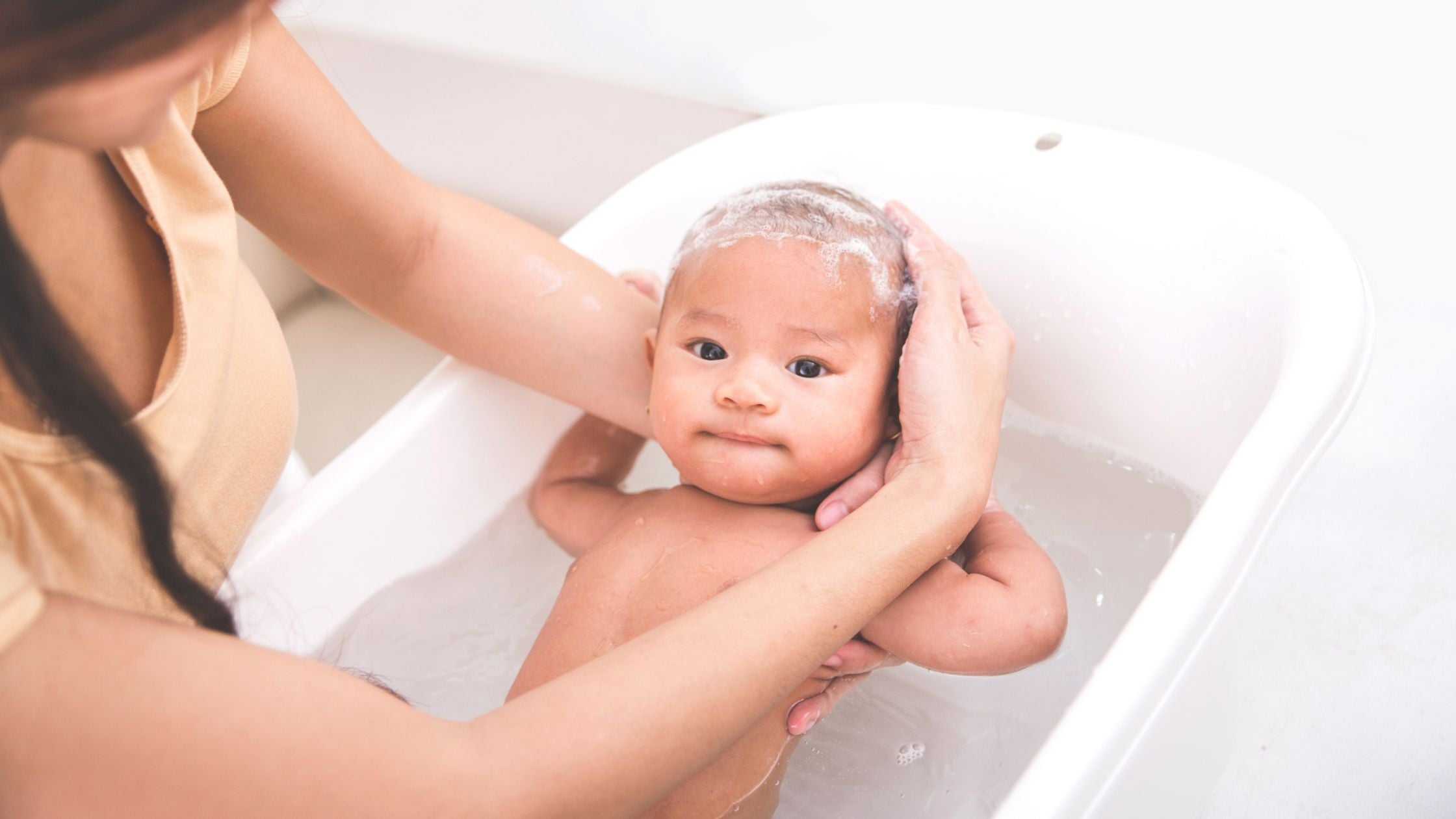How Often Should You Wash Your Child’s Hair?

How Often Should You Wash Your Child’s Hair?
As a parent, you’ve probably got your own hair-washing routine down pat – but how about a routine for your little one?
We know that hair-washing day can be a challenge when you have babies and toddlers, especially if they don’t love the feeling of water on their face and head. But it’s a vital hygiene and self-care practice that we can encourage our little ones to enjoy! Choosing a gentle, tear-free shampoo that’s gentle on little eyes (like Itchy Baby Co. Natural Shampoo and Body Wash) is one way to help your child feel more comfortable during the hair-washing process.
The good news is, in most cases, a child’s hair doesn’t need to be washed as frequently as adult hair. How often you’ll need to shampoo your little one’s hair will depend on their age, hair type, activity level and even the climate you live in. Here are some general tips and guidelines for how often your little one’s hair may need to be washed.
Age and Hair Washing Frequency
How Often Should I Wash My Baby’s Hair?
Small babies are not as active, and their hair usually doesn’t get as oily, so washing their hair once or twice weekly should be enough. During the newborn phase, it’s recommended to wash with only water and a clean washcloth and skip the shampoo. As they get older, you may wish to introduce a small amount of gentle, tear-free, and fragrance-free baby shampoo.
If your baby has cradle cap, you may need to wash their hair more often to help remove any flakiness – read more about how to help cradle cap here. Older babies who have started having messy meal times may also need to wash their hair more frequently.
What About Toddlers and Older Children?
As your baby grows into a toddler and starts exploring their surroundings and being more active, you’ll probably find that they become messier throughout the day and need more frequent hair washing. 2-3 times per week is usually enough, or when you notice their hair looks oily – just be sure to continue using a gentle shampoo free from harsh ingredients like sulphates, parabens and fragrances. These ingredients can dry out and irritate delicate little skin and scalps.
When your child starts puberty or reaches the age of twelve, they should wash their hair more frequently.
How Does Hair Type Affect How Often I Should Wash My Child’s Hair?
Your child’s hair type will influence how often their hair should be washed. Every child is different, so always do what you feel is best for their unique hair type.
Straight or Oily Hair
Straight or oily hair types may need to be washed more frequently.
Dry, Curly or African-American Hair
Children with dry, curly or African-American hair may need less hair washing than others – every 7-10 days is suggested, but of course, use your parental judgment.
Hair Washing and the Weather
Your hair-washing schedule may need to change depending on the weather. If you live in a dry climate, chances are your little one won’t need their hair washed as frequently as those living in a humid climate.
We hope these guidelines help you develop a healthy and fun hair-washing routine for your little one! As with many parenting things, there are no hard-and-fast rules regarding how often you should wash your child's hair. It’s best to stay adaptable and change your routine as required as your child grows, their activity levels change, and the seasons change around them.
Whether you’re shampooing their hair once a week or more often, choosing a kid’s shampoo that cleanses their hair while being gentle on their eyes and skin is essential. Our Natural Shampoo and Body Wash is formulated with sensitive skin in mind, with plant-based ingredients like coconut oil, aloe vera and emu apple for happy, healthy little hair and skin.
This blog post was brought to you and your bub with love and care by the Itchy Baby Co. team x
Disclaimer: Information provided is of a general nature only and you should always consult your medical professional.

